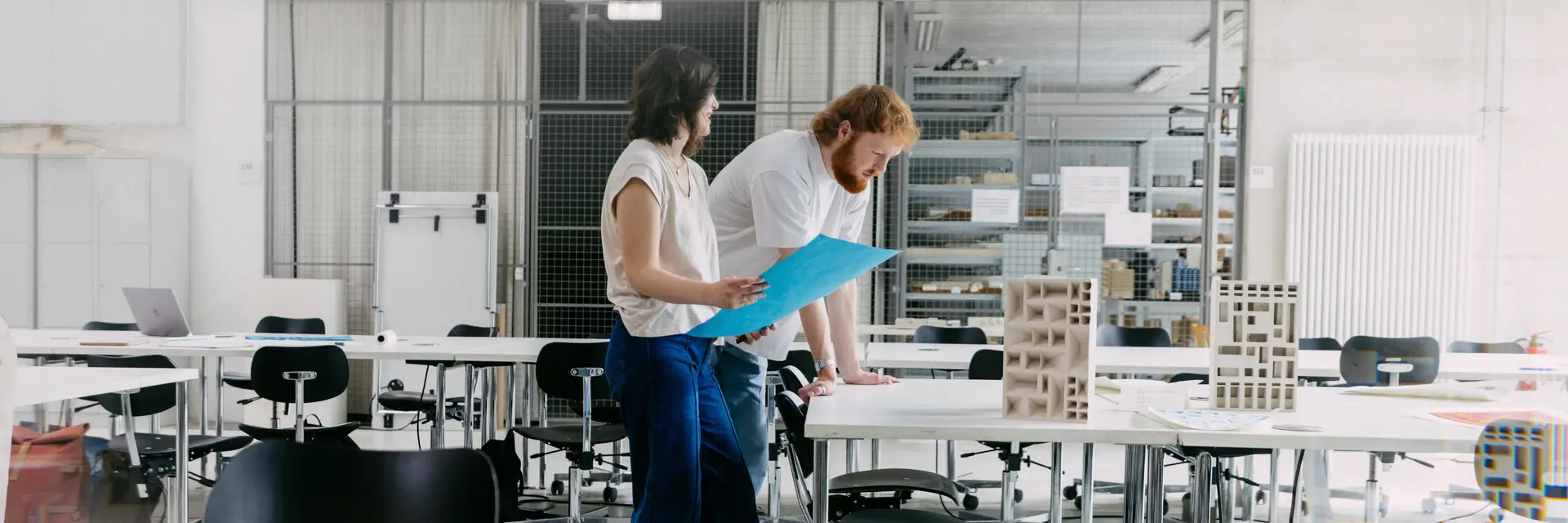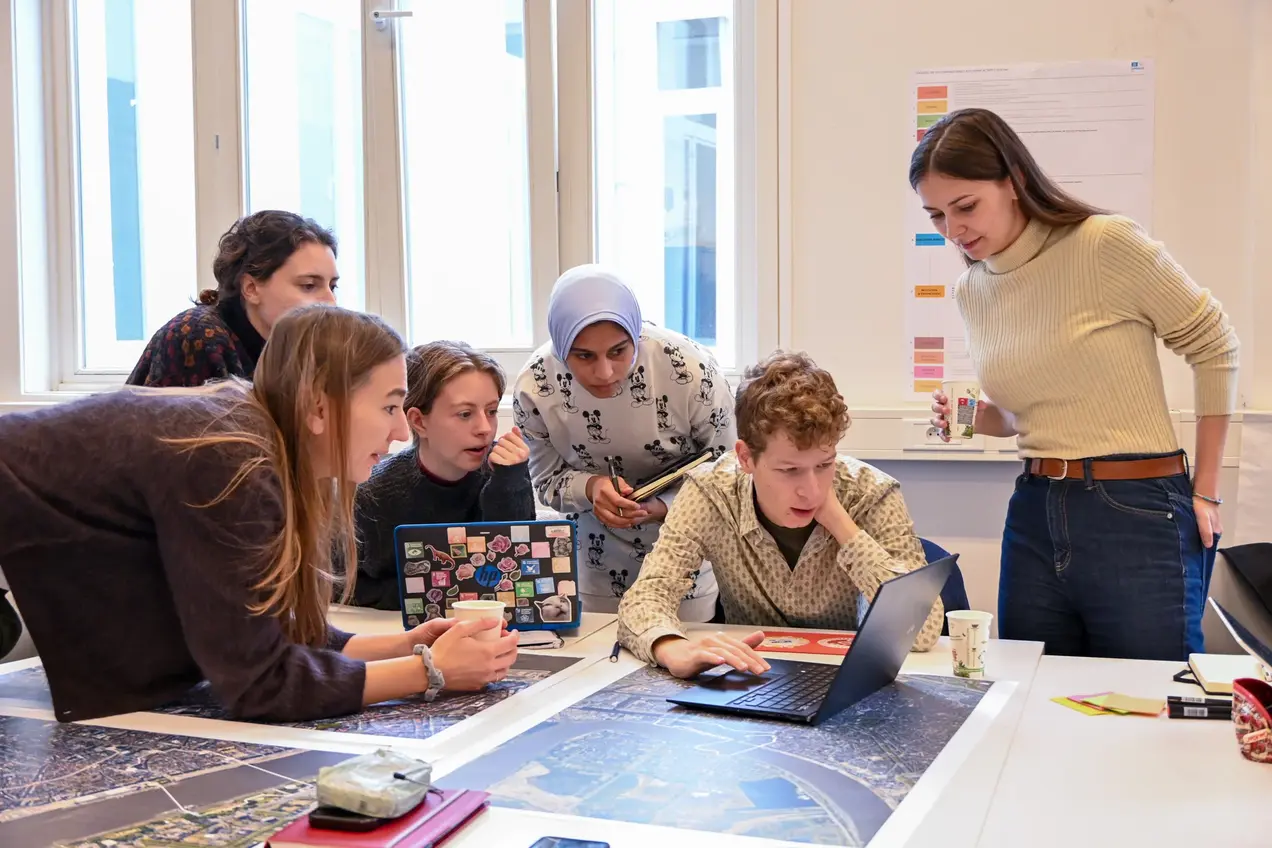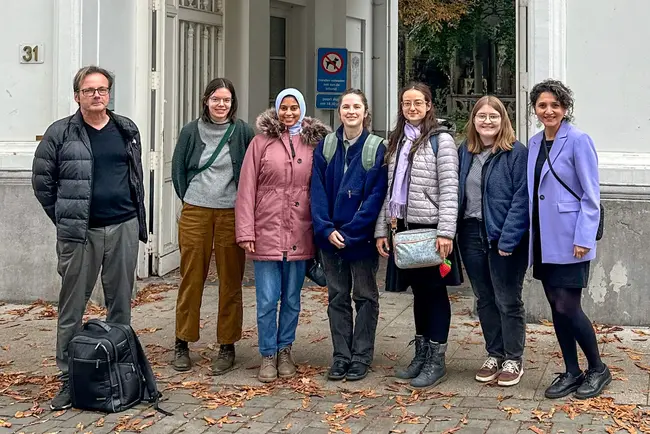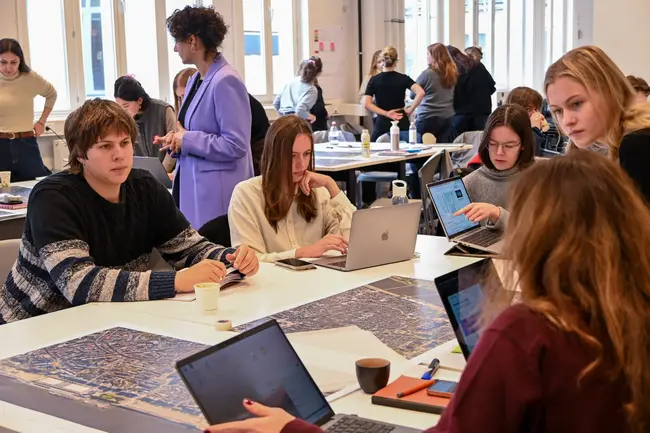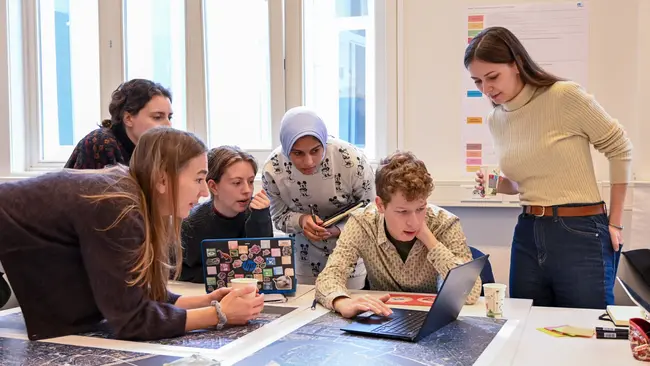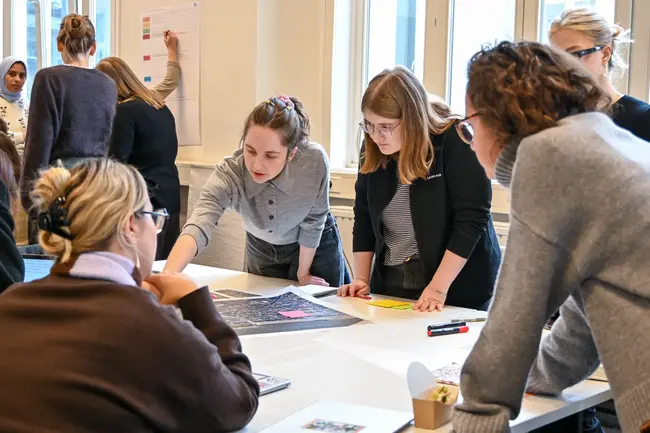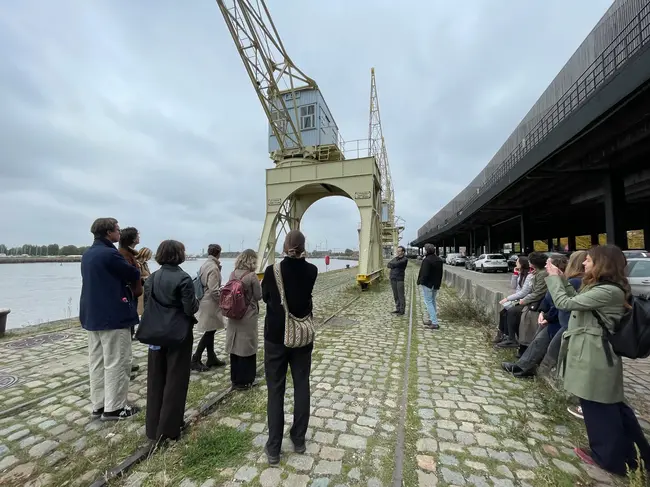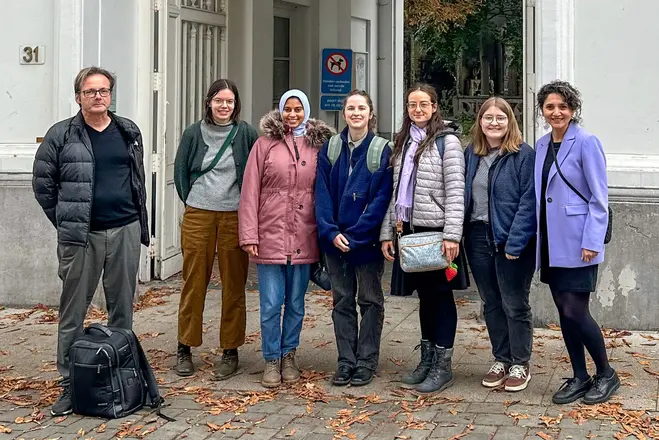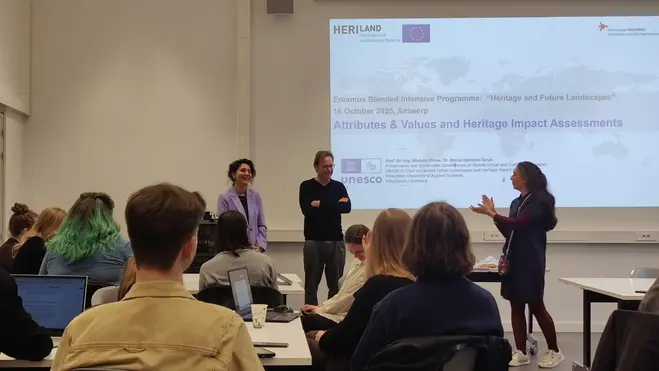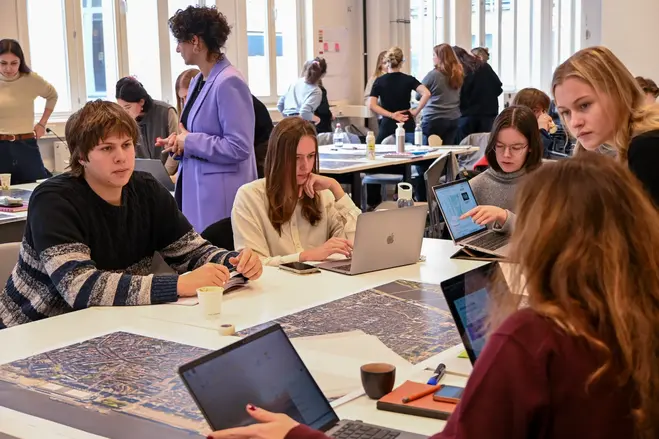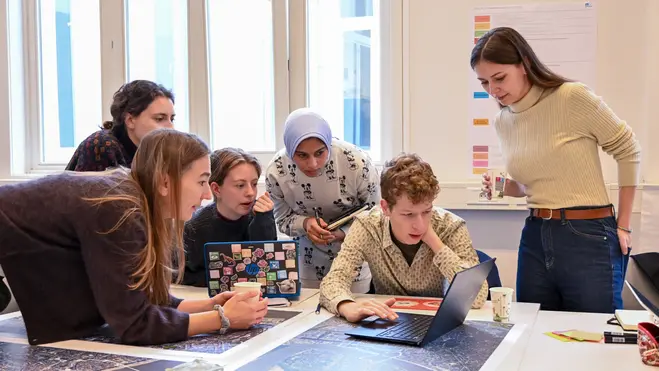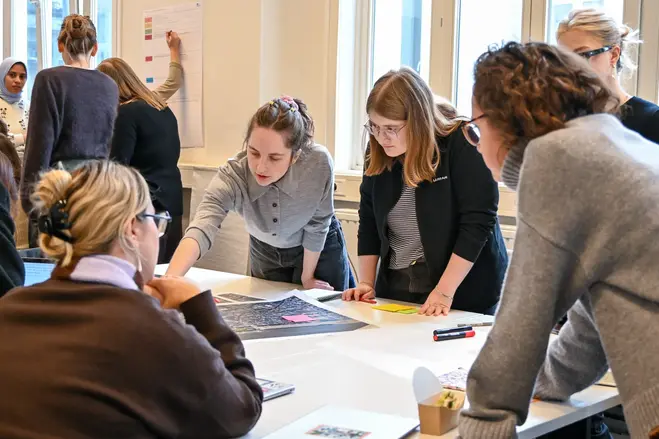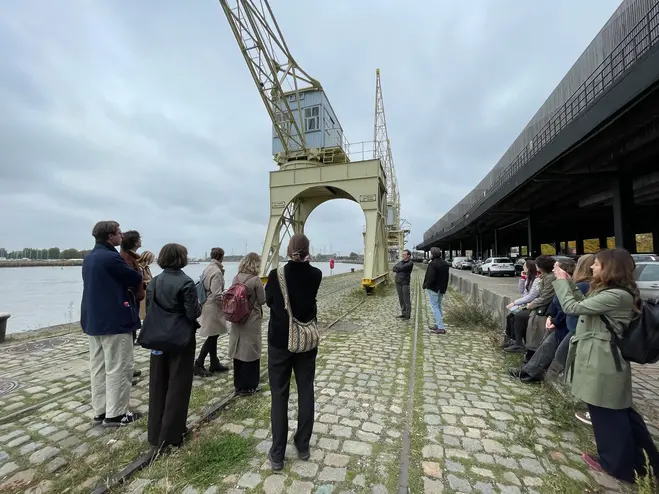Five students from RheinMain University of Applied Sciences — Elizabet Hristrova, Eva Lützeler, Johanna Lentes, Noha Mourad, and Pia Decker — together with Prof. Michael Kloos and Dr. Merve Demiröz-Torun had the opportunity to participate in the “HERILAND Blended Intensive Program 2025” at the University of Antwerp. The program took place in the form of webinars and on-site in Antwerp and was organized by Prof. Dr. Yonca Erkan and Fiona Hamilton. More than 40 students and professors from various European universities participated: University of Antwerp, Vrije Universiteit Amsterdam, University of Gothenburg, Vilnius University, and RheinMain University of Applied Sciences.
HERILAND - A platform for sustainable cultural heritage
HERILAND is an association that promotes a democratic, sustainable future and applies this goal to the tangible and intangible values of cultural heritage. The aim of the program is to empower future young professionals to deal with different heritage landscapes in a sustainable way and to learn about new tools in the field.
On the first day, we were welcomed at the Felix Archive by Prof. Dr. Yonca Erkan and Prof. Dr. Inge Bertels. In preparation for the seminar, we were tasked with taking an in-depth look at a heritage landscape of our choice and analyze which social challenges should be highlighted in this context. The idea is to include this knowledge in blog posts after the seminar. The results of this research were discussed in small groups on Monday. We also gained exciting insights into the history and current architectural and archaeological challenges and projects of the city of Antwerp in several lectures by Prof. Dr. Iason Jongepier, Karen Minsaer, Tim Bellens, and Simone van Gemert.
Excursion through Antwerp
We used Tuesday to explore Antwerp together. Small working groups presented important places and sights in the city, always with a focus on cultural heritage and how it has changed over time.
Workshops on HUL and PHP - methods and perspectives
Over the following days, we learned methods for analyzing heritage values in theory and applied them directly to the cultural landscape of Antwerp.
The first workshop on HUL (Historic Urban Landscapes) was led by Prof. Dr. Yonca Erkan. Small groups identified what would be important for the heritage landscapes of Antwerp and developed concrete ideas for implementing the goals in relation to four different areas: knowledge and planning, civic participation, regulatory processes, and finance.
The workshop on PHP (Participatory Heritage Planning) was held by Prof. Susanne Fredholm. It took into account not only aspects of human life, but also the perspectives of other living beings and elements, such as water. Ultimately, listening to different perspectives allowed us to find common ground.
On Friday morning, we students were also challenged in a workshop; the HIA (Heritage Impact Assessment) exercise took a practical approach to the sustainable development of world heritage. To conclude the week, two input lectures in the afternoon provided impetus for defining the concept of monuments and its expansion, as well as for actively shaping the international monument community.
Conclusion - interdisciplinary exchange and new perspectives
Our participation in the HERILAND programme allowed for an intensive exchange of ideas on heritage conservation activities. The interdisciplinary composition of the student body in particular gave rise to exciting discussions, which provided inspiration in addition to the lectures and workshops. The in-depth work on our blog posts with the help of the concepts we had learned was also an opportunity to approach the HERILAND concept according to our personal interests.
